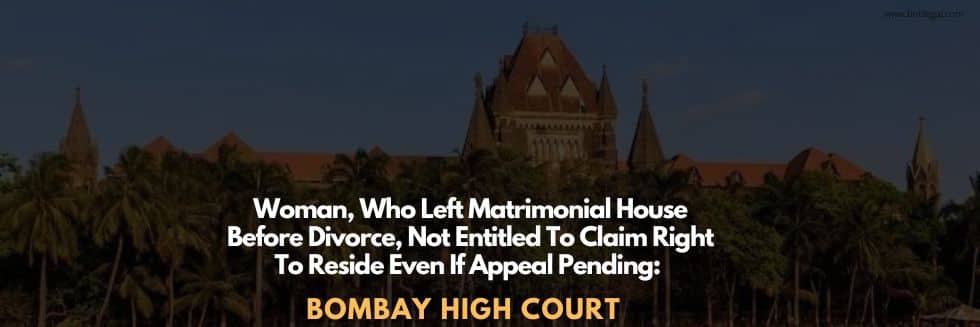In a noteworthy judgment, Delhi High Court observed that a daughter-in-law has not an indefeasible right of residence under Section 19 of the Domestic Violence Act in a shared household and can be evicted on the behest of aged in-laws who are entitled to live peacefully.
“Thus, where the residence is a shared household, it does not create any embargo upon the owner to claim eviction against his daughter-in-law. A strained frictional relationship between the parties would be relevant to decide whether the grounds of eviction exist,” the High Court said.
Justice Yogesh Khanna was hearing an appeal challenging a judgment and decree dated 10 July 2018 passed by a trial court in connection to a civil suit. The appeal was filed by a daughter-in-law against the trial court order denying her the right to stay in the matrimonial house.
The appellant who is a mother of two minor daughters claimed that the suit property was purchased through joint family funds and from sale proceeds of the ancestral property and thus she also has a right to reside there.
The respondent, father-in-law, submitted that he is the absolute and sole owner of n question vide a registered sale deed dated 27 September 2004. The respondent had originally filed a suit seeking eviction of the daughter-in-law.
A decree of possession with damages equivalent to the market rent of the alleged illegal possession was passed against the daughter-in-law. The court had also passed a decree of permanent injunction to restrain her from creating any third party right in such property.
Justice Khanna stated, “I am of the considered opinion, since there exists a frictional relationship between the parties, then at the fag end of their lives it would not be advisable for old parents to stay with appellant and hence it would be appropriate if an alternative accommodation is provided to the appellant as is directed in the impugned order per Section 19(1)(f) of the Protection of Women from Domestic Violence Act.”
The court also noted that the relationship between the appellant and her husband was far from cordial. The husband, who is residing in rented accommodation, had filed a complaint against her in the past and has not claimed any right in the suit property.
“Admittedly, the right of residence under Section 19 of the DV Act is not an indefeasible right of residence in shared household, especially, when the daughter-in-law is pitted against aged father-in-law and mother-in-law. In this case, both being senior citizens of aged about 74 and 69 years and being in the evening of their life, are entitled to live peacefully and not to be haunted by the marital discord between their son and daughter-in-law,” Justice Khanna noted.
The High Court bench dismissed the appeal and recorded the undertaking by the father-in-law to provide alternative accommodation to the appellant till the existence of her marriage with their son.






